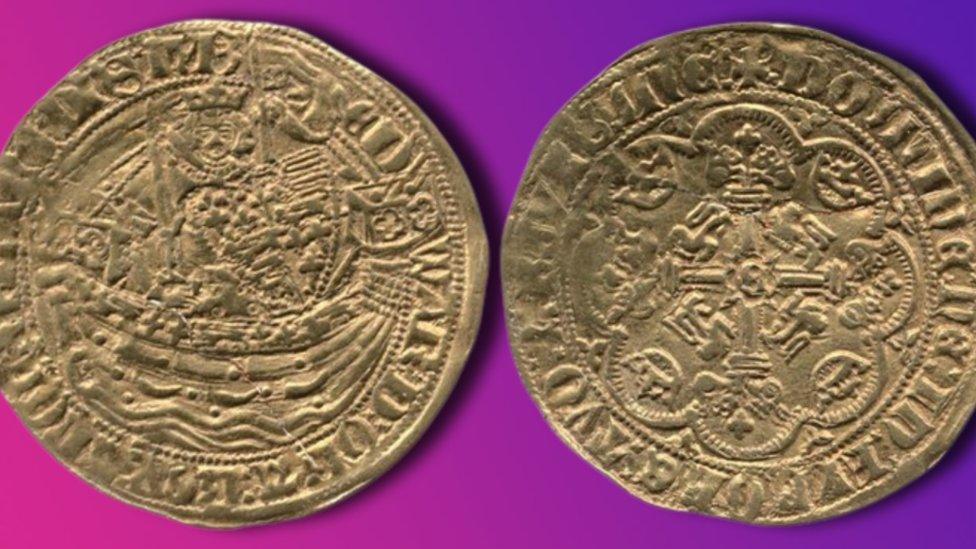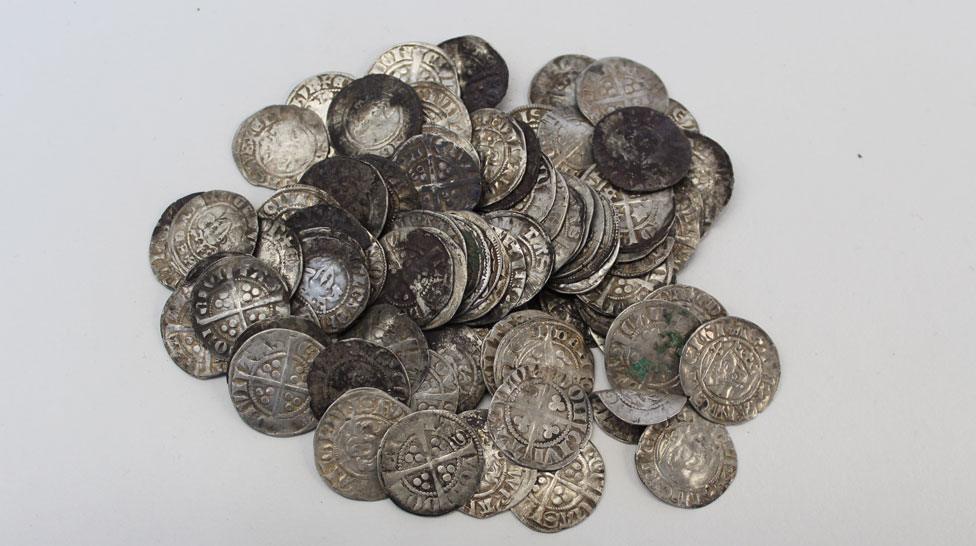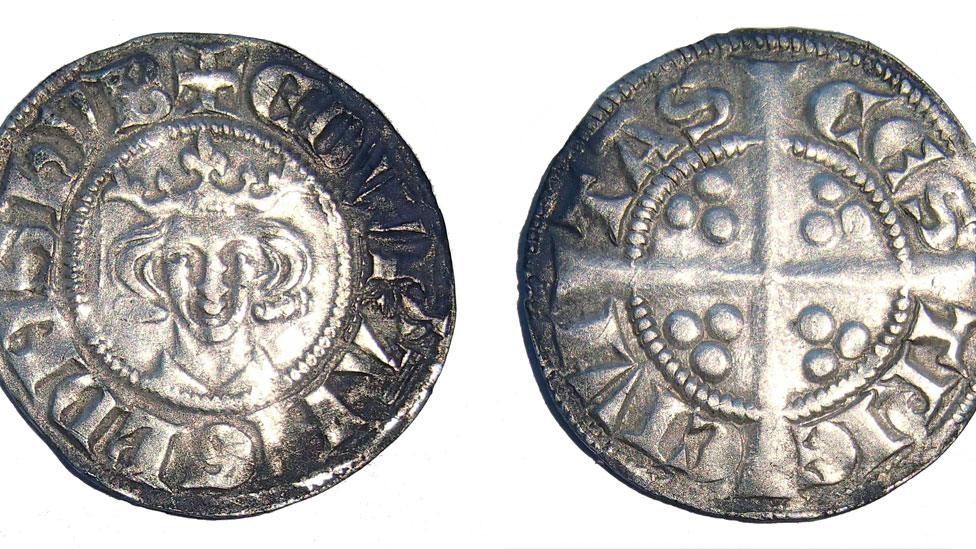Rare medieval gold coins and silver pennies found in Buckinghamshire
- Published
- comments

There had been only 12 known examples of the rare gold coins
Twelve mega-rare medieval gold coins, along with hundreds of silver pennies have been found in Buckinghamshire.
The huge treasure hoard was originally discovered four years ago, but the coins have finally been identified by experts.
It's thought the money was buried by its owner around the time of the Black Death, in the 14th century.
The coins have now officially been declared 'treasure' and will go to a special panel of antique experts so that they can be valued.
What's happened?

The coins were initially discovered in 2019
In total, 12 medieval gold coins and 616 silver pennies were uncovered by amateur detectorists in the Buckinghamshire village of Hambleden in April 2019.
The rare gold coins, called nobles, were the first English gold coins produced in quantity and were introduced during the reign of King Edward III (1312-1377).
If something that has been dug up is made of gold or silver and its owners are unknown, it's classed as 'treasure'
Discoveries of treasure must be reported to the authorities and the landowner.
The authorities decide what happens to it and the finder could get a fee

After the Norman Conquest, the only coins in circulation were silver pennies until Edward III decided to re-introduce gold coins
Dr Barrie Cook from the British Museum said there had only been 12 known examples of the rare gold nobles ever found before the 2019 discovery.
Dr Cook explained that "people hid their money all the time as there were no banks" and the owner was probably local.
He said: "He might be an official running a manor or a priest, but he's not super rich either as the super rich didn't bury their money."
